Christine Amsden's Blog: Christine Amsden Author Blog, page 46
December 21, 2011
Short Story Review and Three-Question Interview: Twelvers by Leah Cypess
If you've ever read "The Happiest Baby on the Block," then you've probably heard of the first three months of a baby's life being referred to as "the missing fourth trimester." Some theorize that with greater intelligence and greater head size, our babies come out a little too early, compared to other animals whose babies are far more able to adapt at birth.
So what if artificial wombs allowed unborn babies to remain in-utero for an extra three months? Would they come out stronger, able to sleep through the night? And would there be consequences?
This creative science fiction tale by Leah Cypess explores that possibility, from the perspective of just such a child — growing up and dealing with middle-school bullying. "Twelver" is an insult, but Darla isn't even sure how to deny it, when her reactions to their provocations prove she is what they say.
Being a bit of a naturalist myself, I found it hard to think about a potential future in which babies are grown artificially. (And I suppose fed that way, too…alas, I loved nursing!) Although, having had terrible migraines through both of my pregnancies, I could see the appeal. 
Either way, it was fun and imaginative. Darla was an intriguing character, and I certainly recommend this story to science fiction fans!
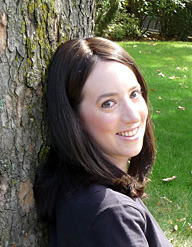 Leah Cypess used to be a practicing attorney in New York and is now a full-time writer in Boston. She much prefers her current situation. She wrote her first story when she was six years old (the main character was an ice cream cone), and went on to publish two young adult fantasy novels, Mistwood and Nightspell (the main characters are, respectively, a shapeshifter and a barbarian princess).
Leah Cypess used to be a practicing attorney in New York and is now a full-time writer in Boston. She much prefers her current situation. She wrote her first story when she was six years old (the main character was an ice cream cone), and went on to publish two young adult fantasy novels, Mistwood and Nightspell (the main characters are, respectively, a shapeshifter and a barbarian princess).
Three-Question Interview:
A few pieces of this story had me thinking about "The Happiest Baby on the Block" (as I mentioned in my review). So I have to ask…have you read it,and if so, did it inspire this story in any way?
I both read the book and watched the DVD (along with pretty much every
baby book/DVD in existence) when my oldest daughter was born. Before
writing this story, I read some more technical medical books on child
development, but I'm pretty sure "The Happiest Baby on the Block" is
where I originally heard of the "fourth trimester" concept.
Would you grow a baby in an artificial womb, if you could?
The genesis of this story was my intense longing for such an invention
while I was in my first trimester of pregnancy! So a part of me would
like to say yes. Then again, I also breastfeed despite the
availability of formula; and I suspect that even if there was such a
thing as an artificial womb, it would turn out to be less healthy for
the baby than doing it the old-fashioned way. Then again, I have
pretty debilitating pregnancies. So I think the only answer I can give
at the moment is that… I would be very conflicted.
What are you working on now? (And when do I get to read it!?)
At this precise moment, I'm working on a short story for an anthology
invite; but that's my only current deadline, so I'm also flipping
between various book projects, working on whichever one strikes my
fancy on any given day. (This is my preferred method of working, so
I'm having a lot of fun.) I'm hoping to finish a first draft of one of
the books in a few months, and you will definitely get to read it
then!
Share and Enjoy:
December 15, 2011
Bringing Worlds to Life in Science Fiction and Fantasy
I will once again be teaching a month-long world building workshop at Savvy AUthors this January. I've led this class three times before, and learned something new each time. I love it! I always give personal feedback, and try to tailor my lessons to meet the needs of the group. They're always a little different, which is the main reason I enjoy leading a workshop rather than reading a book on writing. The workshop can answer back, and after all, no two stories are exactly alike. 
If you'd like to sign up for the workshop, you still have a couple of weeks, but seating is limited, so don't wait too long.
Share and Enjoy:
December 14, 2011
Short Story Review and Three-Question Interview: Movement by Nancy Fulda
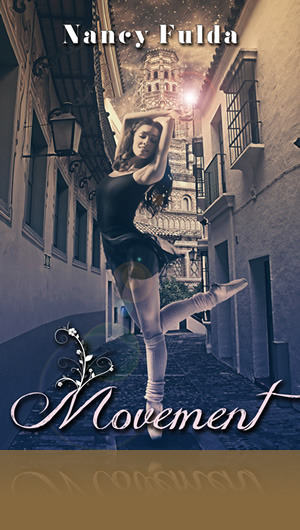 If I were given only one word to describe "Movement" by Nancy Fulda, I would choose beautiful. I have more words, and will do my best to use them well, but I wonder if any can do as much justice to the story as the one.
If I were given only one word to describe "Movement" by Nancy Fulda, I would choose beautiful. I have more words, and will do my best to use them well, but I wonder if any can do as much justice to the story as the one.
Hannah is an unusual character, suffering from what specialists call "temporal autism," though she isn't sure how aptly the label fits. At least, not the autism part. She is trapped in a strange world, with unique perspectives and ways of perceiving things. Her parents are trying to decide whether or not to okay a procedure to make her "normal," and Hannah does not know what she thinks about that.
One of the powers of the written word over more visual mediums like television is the ability to get inside a character's head and show us a perspective we would not otherwise know. For the space of this story, I was Hannah, looking out at a futuristic world through her eyes. And it was…beautiful.
I highly recommend this story.
Quotable Line: "Connections within my brain are forming, surviving, and perishing, and with each choice I make I alter the genotype of my soul."
Title: Movement
Author: Nancy Fulda
Length: 3900 words
Published in the March 2011 issue of Asimov's.
Also available in kindle edition.
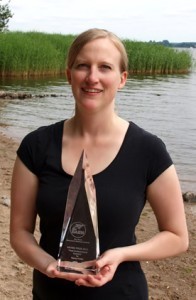 Nancy Fulda is a Phobos Award winner, a Vera Hinckley Mayhew Award recipient, and has been honored by Baen Books and the National Space Society for her writing. Her fiction has appeared in Asimov's Science Fiction Magazine, Jim Baen's Universe, Apex Digest, and other professional venues. She has been a featured writer at Apex Online, a guest on the Writing Excuses podcast, and is a regular attendee of the Villa Diodati Writers' Workshop.
Nancy Fulda is a Phobos Award winner, a Vera Hinckley Mayhew Award recipient, and has been honored by Baen Books and the National Space Society for her writing. Her fiction has appeared in Asimov's Science Fiction Magazine, Jim Baen's Universe, Apex Digest, and other professional venues. She has been a featured writer at Apex Online, a guest on the Writing Excuses podcast, and is a regular attendee of the Villa Diodati Writers' Workshop.
Nancy is donating all December revenue from sales of Movement to the National Foundation for Autism Research. You can learn more about that at her web site.
Three-Question Interview
Hannah is a terrific character, one who, I think, represents any number of people who don't quite live in the world the way we expect them to do. Who or what was your inspiration for her character?
My son has an autistic spectrum condition. At the time I was writing Movement, he and I were struggling to understand each other. It doesn't feel right to say that Hannah's character was inspired by him, because he and Hannah have almost nothing in common. (My son is verbal; Hannah isn't. My son expresses his fascination with causality through games and stories; Hannah dances.) But Hannah's personality and her unique perception of time definitely grew out of my floundering desperation to comprehend a mental architecture that was utterly foreign to me, and from my son's tender and diligent attempts to do the same.
I am pleased to report that, for my son and me, the story has a happy ending. There are plenty of mountains left for us to scale, but we've found a common ground that lets us be ourselves and still enjoy each others' company.
Would you stop writing for a million dollars?
I hope my writing never gets so bad that someone would pay that much money to get me to stop.
What are you working on now?
I'm completing the first draft of a coming-of-age novel set on a planet with a slo-o-o-o-w axial rotational and nomadic caravans that live in the twilight regions between day and night. The story focuses on Mikaena, who's a sort of black sheep in her caravan and always gets in trouble for trying to do what's right. She ends up involved in a plot to change society and save her world from destruction, and none of it turns out the way she expects.
Share and Enjoy:
December 12, 2011
Cassie Scot: Normal Detective
As my publisher likes to say: The ink is not yet dry on the contract, but Twilight Times Books will be publishing the first book in my new urban fantasy series, Cassie Scot: ParaNormal Detective.
Yes, with a strike-through! At least, that's what I'd like to see on the cover art. For searchability purposes, and if a strike-through option is not available somewhere, it will probably just be Cassie Scot: Normal Detective
What's it about? I'm sure I'll come up with better blurbs over the next few months, but for now:
***Cassie Scot is the ungifted daughter of powerful sorcerers, living between worlds but not belonging to either. At 21, she is trying to find a place for herself, but earning a living as a private investigator in the shadow of her family's reputation isn't easy. When she is pulled into a paranormal investigation, and tempted by a handsome and powerful sorcerer, she will have to decide where she truly belongs.
***I think of the Cassie Scot series as a romance and coming of age story. Each book in the series will be framed by a mystery that is solved by the end of the book, however; Cassie's story will continue. For this reason, the series does need to be read in order, even though there is a clear beginning, middle, and end to each one. The books would, quite simply, not make sense if read out of order.
I could go on and on about this, but I won't (today!). I do hope you all enjoy reading it as much as I've enjoyed writing it. And now…back to work on book two, which is already in final revisions. (Pssst…that's my way of saying there won't be an indefinite wait between books. They're coming!)
Share and Enjoy:
December 7, 2011
Short Story Review and Three-Question Interview: The Sighted Watchmaker by Vylar Kaftan
Science fiction, in its full glory, teases our imagination and asks us to question the very nature of ourselves and our universe. The Sighted Watchmaker, by Vylar Kaftan, is such a story.
Umos isn't a maker. Or at least, he doesn't think he is. The makers abandoned him, and now he must fulfill their desires by guiding another species to full intelligence. But why did the makers leave him? And for that matter, who made them?
I thoroughly enjoyed this thought-provoking tale, and found it easy to read, despite its strangeness. I think that's because the strangeness was only skin deep; looking deeper, I saw something very familiar.
Quotable line: "…if he did create a species capable of comprehending him, he wanted to be interesting."
I highly recommend this story.
Title: The Sighted Watchmaker
Author: Vylar Kaftan
Length: 3100 words
Availability: Lightspeed
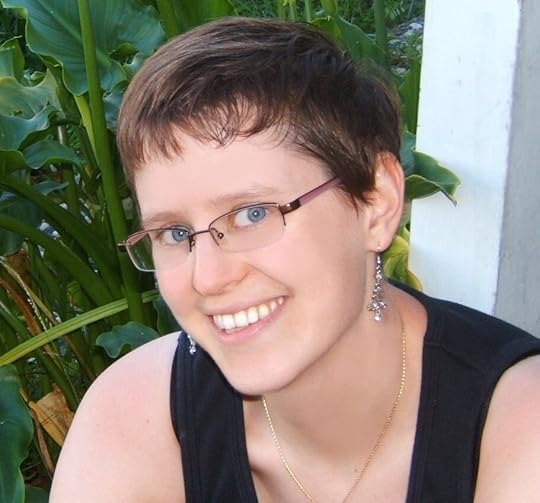 Vylar Kaftan writes speculative fiction of all genres, including science fiction, fantasy, horror, and slipstream. She's published stories in places such as Clarkesworld, Realms of Fantasy, and Strange Horizons, and founded a new literary-themed convention called FOGcon. She lives with her husband Shannon in northern California and blogs at www.vylarkaftan.net. Her story, "I'm Alive, I Love You, I'll See You in Reno", was nominated for a Nebula Award.
Vylar Kaftan writes speculative fiction of all genres, including science fiction, fantasy, horror, and slipstream. She's published stories in places such as Clarkesworld, Realms of Fantasy, and Strange Horizons, and founded a new literary-themed convention called FOGcon. She lives with her husband Shannon in northern California and blogs at www.vylarkaftan.net. Her story, "I'm Alive, I Love You, I'll See You in Reno", was nominated for a Nebula Award.
Can you tell us a little bit about your inspiration for writing "The Sighted Watchmaker?" What do you hope readers will take away from your stories?
I was challenged to write a story based on a poem. The inspiration here is "Enigmas" by Pablo Neruda, which has these two final lines:
and in my net, during the night, I woke up naked, / the only thing caught, a fish trapped inside the wind.
That gave me a starting image. The rest just wrote itself, which is very unusual. It felt like I was reading off a page where this story was already written, and I was just as surprised to find out what happened as anyone. Some writers call this "a gift from the Muse," and it's lots of fun when it happens.
If you were permanently stranded on a deserted planet, with no hope for escape, what would you write, knowing no one would ever read it except you?
Well. The word HELP in the sand comes to mind.
If no one would _ever_ read it? I'm not sure I'd write anything. Now, if we have someone reading it five hundred years from now, I'd write The Swiss Family Kaftan and include exhaustive descriptions of how completely BORED I was. I'm more social than most writers.
What are you working on now?
Making sure I never ever get stranded on a desert island. So far, so good. Also trying to produce some new short stories.
Share and Enjoy:
December 1, 2011
Tips for Writers: The Gambler
I hear a lot of writing advice that goes something like this: "Put your butt in a chair and force yourself to keep writing." In fact, BIC (butt in chair to those of us in the biz) is probably the most popular writing advice out there. I've even given it myself, and for those of you who haven't started that novel you've been thinking of writing for the past ten years, it's still my advice.
But for those of you who are already writers, who are dedicated and diligent, I have different advice. It comes from one of my all-time favorite songs, The Gambler by Kenny Rogers:
You got to know when to hold 'em. Know when to fold 'em. Know when to walk away. Know when to run. You never count your money while you're sitting at the table, there'll be time enough for counting when the dealing's done.
The song doesn't give specific instructions for holding or folding, but then again, life doesn't come with a convenient instruction manual. Somewhere, deep inside yourself, when you're being honest, you have to find your own answers.
There are times, when writing, that you need to white-knuckle it through something. Just get to the end and sort the rest out later. There are times when you know something's wrong, and you need to take a step back to reevaluate. There are times when you have to walk away from a project, at least for a time, to regain a sense of perspective and come back at it with more knowledge or maturity. And there are even times when you need to recognize that what you're working on is crap.
When are these times? I wish I could tell you. I sometimes recognize them when I see them, but like you, I also sometimes struggle to identify the right path. All I know is that BIC is too basic for us more serious writers. We carve out time to write every day, or at least every week, we've finished things in the past and know we can finish things in the future. The question then becomes: What do we spend our precious writing time on?
Share and Enjoy:
November 30, 2011
Book Review: Midnight Crystal
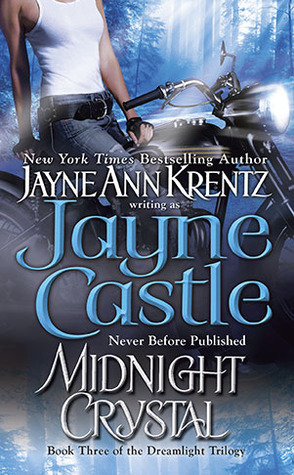
Midnight Crystal represents the final installment in the Burning Lamp Trilogy, which covers all of Jayne Ann Krentz's time periods and aliases. In each book, a descendent of Nicolas Winters, who did alchemical experiments on genetic code, is gifted with multiple talents that seem to be driving him insane. Only with the help of the burning lamp — and a woman who can manipulate dreamlight energy — can he be saved from insanity.
To be honest, I haven't loved the burning lamp trilogy. This one brought the same myths and legends forward into the future on Harmony, a distant planet cut off from earth some 200 years in its past, and felt like the same story all over again. Insert dreamlight reader who has never been able to sleep with anyone before her one true love shows up. Winters descendant who thinks he's going crazy, isn't really, but needs dreamlight lady to help stabilize him. As far as romance and magic, it left me feeling flat. Even the revelation of the midnight crystal didn't inspire me.
On the other hand, the mystery element of the story was decent. It came together very well at the end and kept me guessing.
I recommend this to Jayne Ann Krentz fans. If you're not already a fan, I suggest going back to the start of the Arcane Society series (which this one overlaps).
Rating: 3/5
Title: Midnight Crystal
Author: Jaynce Castle
Genre: Paranormal Romance/Mystery
ISBN:9780515148367
Published August 31, 2010
Share and Enjoy:
November 8, 2011
The Invisible Frog
Yesterday, when I was walking my children home from school, my daughter (3) points to the sidewalk and asks, "What's that?" I stared at the gray path, trying to figure out what had caught her attention, but I didn't see it. An older boy, walking home from school, glances at her and says, "It's a frog."
I got closer, getting on my hands and knees until, just barely, I could make out the gray bump against the gray surface of the path. Sure enough, a nearly invisible frog, no bigger than my thumb, sat at still as a rock.
Concerned that if it stayed put, a passerby would miss the tiny little chameleon, I nudged it until it hopped into the nearby grass, where it hopefully stayed safe from harm.
But today, as I walked the same path, I realized that I hadn't seen the frog until I was on my hands and knees, and if he had returned to his former location, I might squash him. I walked the path slowly, sure that at any moment, I would feel a squish, and then I would probably cry.
It made me think, though, that we are giants. What else might we crush beneath our feet without even noticing? Or who?
Share and Enjoy:
November 7, 2011
Book Review: Insatiable
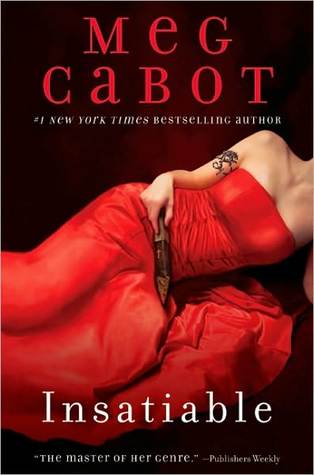
The writer for a soap opera is told that they're going vampire in order to compete against other shows using the same concept. She hates vampire-mania, and doesn't believe in vampires, but before long she finds herself introduced to the Prince of Darkness himself — the son of Dracula.
I enjoyed this book and found it to be a surprisingly quick read. Meena, the heroine, also has the ability to know when/how people are going to die, which adds another interesting psychic aspect to things. I thought she was an interesting character, and I liked watching her struggle with her predictive gift even before the vampires came into the story.
I also appreciated the nod to Bram Stoker's version of Dracula, even roughly naming the main character after the woman from the book. (Different spelling.) Most of the vampires in this book weren't simply misunderstood figures of mystery and romance — they needed to be put down.
The one thing that bothered me about the book, and it's sort of an odd feeling that I'm going to have trouble putting into words, is that I had trouble figuring out the tone. It seemed lighthearted for the most part, but especially at the end, we are left with elements of horror, and a definite uncertainty about the state of things. Granted, there are sequels, so the uncertainty itself isn't a problem, it's more that I'm not sure if what I just read was supposed to be dark or not. I think it was, but if so, I felt the tone was off.
I recommend this book to paranormal fans and I will be looking out for the sequel!
Rating: 4/5
Title: Insatiable
Author: Meg Cabot
ISBN: 006173506X
Publications Date: June 8th 2010
Share and Enjoy:
October 24, 2011
Review and Author Interview: Flower Child by Sheila Deeth

Flower Child paints a beautiful picture of little souls growing in a flower garden until they are ripe and ready to live. But what if no one comes to claim a soul? What happens to the unborn child that never was?
Megan is a mother whose first pregnancy ended in miscarriage, so she was never able to claim the soul of her daughter, but she dreams about her. She even names her — Angela. And even though Megan gets pregnant again, and has a son, she continues to see Angela in her dreams, growing up in the garden she never left.
This story has a surreal, dreamlike quality to it, with first person point of view switching between Megan and Angela.
I know those of us who have miscarried a child often dream and wonder. My own musings haven't taken me down a path like the one in this story, but it was fun to imagine, for a while.
I recommend this story to anyone who has miscarried a child, or who likes to imagine the infinite possibilities of life and death.
***********************************************************************
I recently had the chance to talk to Sheila about her latest story, Flower Child:
What inspired you to write Flower Child?
Flower Child started with a prompt at our local writers' group to base a story on a song. The song I chose was John Denver's Rhyme and Reason and the line "the children and the flowers" fed into a memory where, as a small child, I imagined babies grew from seeds in heavenly flower-fields. Megan's character took over once I'd written the first paragraph—I think she came from memories of losing my first pregnancy to miscarriage. Then Angela appeared, building on questions I'd asked about my unborn child, and so the story grew.
Who do you see as your target audience? What do you hope they'll get from this story?
I suspect mothers must be part of my target audience given the subject, but also anyone who knows mothers too—don't we all? And anyone who wonders what happens to all those unborn children… Anyone who grieves… People who've been hurt by other people claiming to have all the answers. I hope readers might be pleased by the mystery in the tale, maybe intrigued. I know I like not knowing all the answers—it leaves so many possibilities—so maybe that's part of what I want to convey.
I've now read two of your stories, each pretty different from the other. Do you feel you have any common elements from story to story?
That's something I've been thinking about a lot recently. The search for identity is a common element perhaps—the idea that we're more than just the things we do and the things done to us. And love too—love's an important part of each of my stories.
What are you working on now?
Currently I'm editing my novel, Divide by Zero, that's due to come out with Stonegarden next summer. I'm also writing a dystopian tale about a baker and a hungry boy… and a series of YA novels (two and two halves written to date)… and I'm trying to finish a Bible study series (plus related children's stories).
If you were stuck on a desert island with no hope for rescue, but you had food, shelter, and plenty of writing implements, what would you write, knowing no one would ever read it?
I'd finish those Bible tales as soon as a Bible washed up on the shore.
Thank you! It's been great talking to you.
Author Bio:

Sheila Deeth grew up in the UK and has a Bachelors and Masters in mathematics from Cambridge University, England. She moved to the States with her husband and three sons in 1996 and now lives near Portland, Oregon, where she enjoys reading, writing, drawing, telling stories, meeting her neighbors' dogs on the green, and running a local writers' group.
Sheila's first two novellas have been published by Gypsy Shadow and are available from http://gypsyshadow.com/SheilaDeeth.html . Her Bible stories, gift books and picture-books can be found at http://www.lulu.com/sdeeth . Sheila writes book reviews for NightsandWeekends.com, Poetic Monthly magazine and Summit Book Reviews, as well as regularly posting reviews to Amazon, Barnes and noble, Goodreads, Gather, Lunch and Shelfari. Find her on one of her blogs or websites via http://www.sheiladeeth.blogspot.com.
Share and Enjoy:
Christine Amsden Author Blog
- Christine Amsden's profile
- 422 followers



